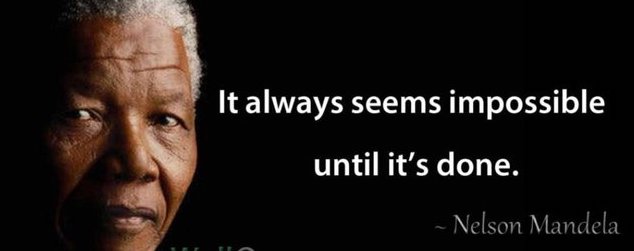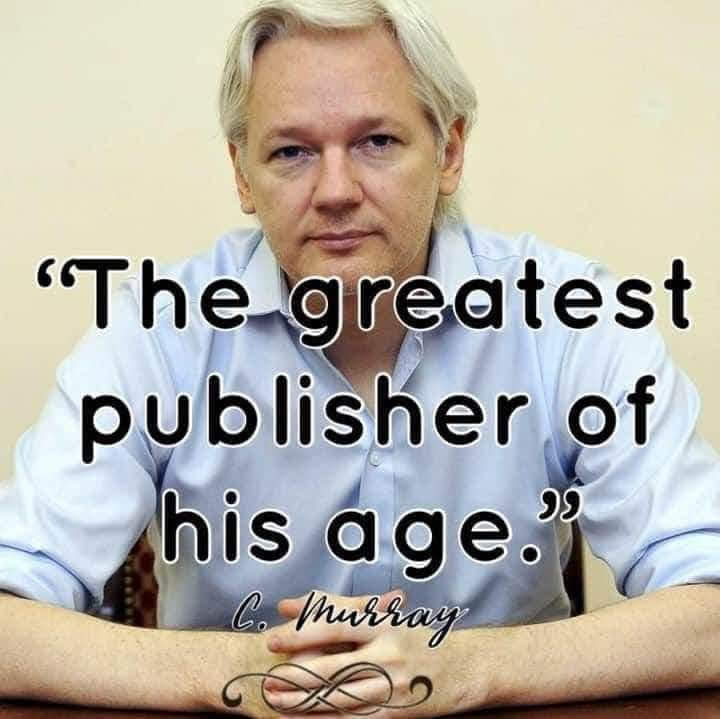by B Nimri Aziz, July 3, 2024. also on Counterpunch.com

This is what many are voicing after the June 24 release of Wikileaks founder and publisher Julian Assange. The cry “sometimes the impossible happens” was uttered a decade ago after this same U.S. Department of Justice suddenly acquiesced on an unjust sentence. It came January 1, 2014 from American civil rights attorney Lynne Stewart on her discharge from a federal prison. After serving more than 3 years into a 10-year sentence imposed in 2010 at the age of 72, Stewart went home. (In the late stages of cancer by then, she passed away in February 2017.) It was hardly medical advice or a bureaucrat’s compassion that finally freed her but a long relentless campaign led by her family.

Besides the unexpected resolution in these cases, both Stewart and Assange endured years of injustice, ill-health, media slander and imprisonment. Like Assange, Stewart was hounded by the U.S. federal government (initiated in 2002 by then U.S. Attorney General John Ashcroft). As with Assange, Stewart’s pursuit by U.S. authorities was endorsed by the American media. Already well known for her defense of individuals with anti-imperialist ideals, Stewart refused to abandon legal representation of an outspoken Muslim cleric. (It was 1995, well before 2001, when anti-Muslim sentiment, stoked by media’s anti-terrorist fervor, was on the rise. As the U.S. government’s charges against Assange threatened the protection of journalists’ sources, its legal pursuit of Stewart chilled any attorney who might take up the defense of Muslims. (The attack was highly effective in Stewart’s case since more than a decade would pass before civil rights specialists demanded judicial processes for hundreds of imprisoned and deported Muslims. Assange release, while celebrated, leaves uncertainty if the U.S. could again invoke the 1917 Espionage Act against journalists.)

Those welcoming Assange’s release rightly points out how, when media colludes with government, they threaten an entire profession and a principle of our democracy. Stewart’s indictment hinged on the democratic principle of client-attorney privilege.
Once, leading international newspapers widely welcomed Wikileaks’ revelations and utilized them in to their advantage. Then all summarily abandoned Assange. After Wikileaks exposed the Democratic Party files, the U.S. liberal community – heavily Democrat loyalists – likewise discarded Assange and Wikileaks. A handful of smart, dedicated attorneys and individuals like film-maker John Pilger known for championing the rights of journalists, along with others began a vigorous campaign in support of Assange. This grew after his kidnapping from the Ecuadorian embassy (where he had sought asylum) and imprisonment without charge in Britain’s Belmarsh Prison. A dedicated team of legal scholars and attorneys engaged petitions and appeals to the British high courts, a process reviewed in articles and discussions published since Assange’s release. Also noteworthy is Richard Medhurst’s recent forum with 6 journalists long-involved with Assange’s case.

The rallying cry “journalism is not a crime” was slow to gain traction. Eventually this changed, doubtless helped by the involvement of John Shipton, Assange’s father, and his brother Gabriel Shipton. Their film “ithaka” and their tour of 18 U.S. cities sometimes addressed a mere handful of attendees. Yet their persistence probably helped arouse the attention of more Australians; hitherto, its leaders seemed unconcerned by Assange’s imprisonment and the American indictment. In May 2022, a new government in Australia brought in Prime Minister Anthony Albanese who elevated hopes with his promise to raise Assange’s case with U.S. authorities. While appeals to British courts continued in London, a cross-party Australian delegation visited Washington to speak with American legislators about Assange. Congressmembers’ responses were not encouraging. But the Australians were undeterred. Within Australia, Assange’s wife Stella and John and Gabriel Shipton joined Wikileaks’ editor Kristinn Hrafnsson and attorneys to urge Australians’ backing for their countryman’s freedom. From outside it was difficult to assess the effectiveness of the Australian campaign.
But in the Canberra Airport press conference on Assange’s arrival there last week Stella Assange and attorney Jennifer Robinson emphasized how essential the Australian government’s role was in wrapping up the case. (Summarized in these BBC and ABC- Australia TV clips.) Those efforts, they explained, went hand in hand with an anticipated appeal to the British court on July 9 that would question Assange’s first amendment rights in a U.S. court, an appeal that might not go well for the Americans. Details and analyses of these issues have been posted, here and here, in the past week.
Unsurprisingly, our shameless, mean-spirited U.S. government could not resist imposing a final injustice—the half million-dollar charge for a private jet it obliged Assange to take from the U.K. via the Pacific Mariana Islands to his home in Australia. Thus, a new appeal for financial support to assist his family to meet that ignoble jab.
What is acknowledged by everyone concerned with Assange long ordeal is the effect of the massive international outcry against the U.S. extradition order and Assange’s cruel imprisonment. (Stewart’s release would never have happened without sustained public pressure too.) Whatever exposés of malfeasance, however much personal and family resolve, what legal acumen and changed political atmosphere helped secure Assange’s freedom, one should not lose sight of the enormous number of letters, articles, symposia, demonstrations, forums, talks, and films generated by supporters. One by one, they accumulated, giving encouragement to a hard-working legal team and Assange’s remarkable family. Injustices designed and pursued to protect the capitalist and military structure are bound to recur; the impossible will be possible if and only when the public understand the truth and forces their leaders to act.
